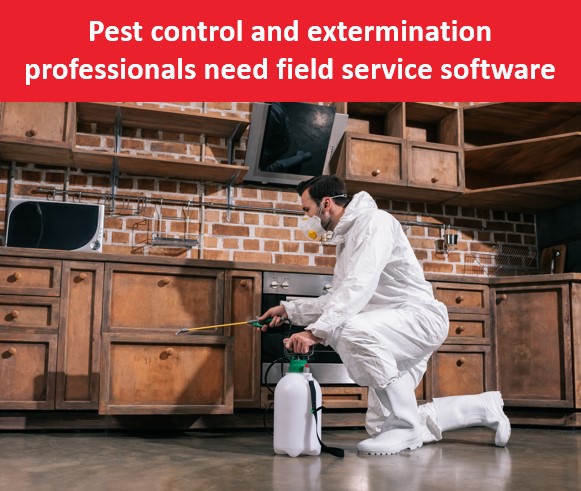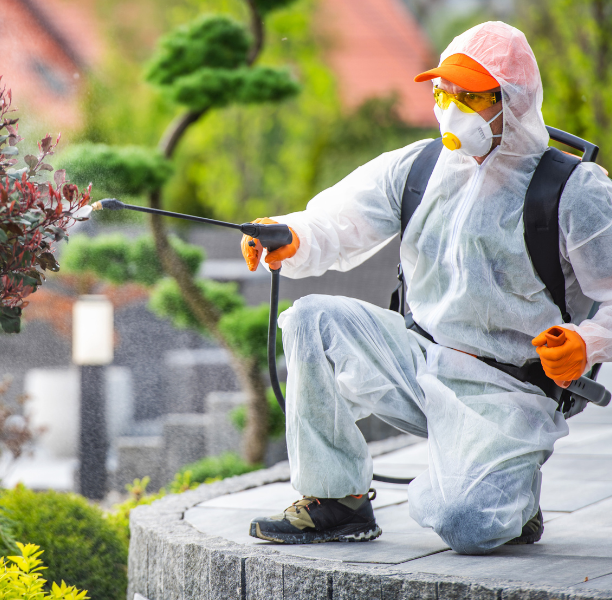Safe and Reputable Insect Control for Lasting Security
Effective parasite management requires a complex strategy that stabilizes ecological honesty with the requirement for efficient insect reductions. The subtleties of these techniques might not be right away clear, prompting a closer examination of the practices that can lead to lasting bug control outcomes.
Recognizing Insect Control Techniques
Pest control encompasses a range of approaches targeted at managing and eliminating unwanted insects and rodents that can endanger both health and property. Comprehending these approaches is critical for reliable parasite administration.
The primary classifications of insect control techniques consist of mechanical, biological, and chemical strategies. Mechanical techniques include physical barriers and catches to stop bug entry and capture undesirable species. Using screens on home windows or employing sticky catches can significantly decrease bug populaces without introducing harmful materials - exterminator coquitlam.

Chemical parasite control is often the most identified method, utilizing pesticides to eliminate bugs. These chemicals can be reliable but have to be used with caution to avoid damaging results on non-target varieties and the environment.
Benefits of Eco-Friendly Solutions
Just how can eco-friendly remedies change pest control methods? The fostering of environmentally friendly parasite control approaches offers countless advantages, significantly enhancing the effectiveness and safety and security of pest management.

An additional advantage is the favorable influence on local biodiversity. Environmentally friendly remedies are created to target certain pests while maintaining helpful pests and wild animals, promoting a well balanced ecological community. This technique straightens with the expanding consumer need for sustainable methods, enhancing the reputation of insect control carriers.
Integrated Insect Administration Techniques
The application of environmentally friendly options normally causes the adoption of Integrated Parasite Management (IPM) approaches, which better improve pest control efficiency. IPM is a holistic approach that integrates multiple techniques to manage bug populations while minimizing environmental influence. This approach emphasizes the use of organic, social, mechanical, and chemical controls, guaranteeing a well balanced and lasting technique of bug monitoring.
One basic element of IPM is the thorough assessment of pest activity and environmental conditions. By monitoring bug populaces and identifying their life cycles, specialists can execute targeted treatments that interrupt the bug's environment or lifecycle, lowering reliance on chemical pesticides. Additionally, cultural methods such as plant rotation and habitat manipulation can significantly lessen bug establishment and recreation.
An additional important element is making use of biological control agents, such as advantageous pests or microorganisms, which can naturally subdue parasite populations. When chemical applications are required, IPM focuses on making use of low-risk chemicals and applies them selectively, minimizing exposure to non-target microorganisms and humans.
Integrating IPM techniques not only improves insect control performance however likewise advertises a more secure ecosystem, lining up with the growing demand for lasting practices in parasite monitoring.
Safe Practices for Homeowners
Comprehending the value of safe techniques in insect control can empower home owners to effectively handle pest problems while securing their wellness and the atmosphere. Executing non-toxic approaches and safety nets is essential in decreasing direct exposure to damaging chemicals.
House owners must first analyze their setting for problems that draw in pests, such as standing food, mess, and water waste. Frequently cleaning and sealing access factors can hinder insects from getting into the home. Utilizing natural deterrents, such rodent elimination as essential oils additional reading or diatomaceous earth, can give efficient choices to chemical pesticides.
When chemical treatments are necessary, homeowners need to choose items that are particularly classified as secure for household use. It is necessary to comply with application guidelines meticulously to avoid overexposure. Additionally, using targeted therapies in areas where bugs are identified, as opposed to blanket spraying, can significantly decrease chemical use.
Lastly, maintaining open communication with pest control professionals is vital. House owners need to ask about the safety of items used and request environmentally friendly options whenever possible. By taking on these safe methods, home owners can develop a much healthier living setting while properly taking care of insect problems.

Tips for Long-Term Protection
Establishing a pest management technique that emphasizes long-term security can considerably boost the performance of the risk-free practices formerly discussed. To achieve this, homeowners need to implement routine evaluations of their building, concentrating on hidden areas such as attics, basements, and crawl spaces. Early detection of parasite activity is essential in preventing infestations from taking hold.
These techniques decrease attractants that draw parasites right into the home. Securing entry factors, such as cracks around home windows and doors, can efficiently block potential insect gain access to.
Landscape design ought to likewise be taken into consideration; keeping plants trimmed and maintaining a range in between plants and the home decreases helpful resources hiding spots for bugs. Utilizing all-natural deterrents, such as crucial oils or diatomaceous planet, can better prevent infestations without turning to severe chemicals.
Lastly, collaborating with a specialist bug control solution for routine examinations can offer an additional layer of safety and security. These experts can provide tailored recommendations and progressed treatments, making sure that your home stays safeguarded versus parasites in the long term.
Conclusion
In conclusion, secure and reputable bug control needs a complex strategy that emphasizes green approaches and integrated parasite monitoring. By implementing all-natural deterrents, performing normal examinations, and preserving proper sanitation, residential property owners can considerably minimize bug populations while safeguarding helpful insects and the setting. Collaboration with professional parasite control services boosts the efficiency of these approaches, making certain customized options that supply enduring security and comfort versus future infestations.
Effective parasite management requires a diverse strategy that stabilizes ecological honesty with the demand for effective insect reductions. The adoption of green pest control techniques offers numerous advantages, significantly enhancing the effectiveness and safety of insect monitoring.The execution of green services normally leads to the adoption of Integrated Insect Management (IPM) approaches, which better boost insect control efficiency. exterminator coquitlam. By keeping an eye on insect populations and identifying their life cycles, experts can apply targeted treatments that disrupt the insect's habitat or lifecycle, decreasing dependence on chemical pesticides.In verdict, secure and trusted pest control needs a diverse method that highlights green techniques and integrated parasite monitoring
 Barret Oliver Then & Now!
Barret Oliver Then & Now! Marla Sokoloff Then & Now!
Marla Sokoloff Then & Now! Barry Watson Then & Now!
Barry Watson Then & Now! Melissa Sue Anderson Then & Now!
Melissa Sue Anderson Then & Now! Ricky Schroder Then & Now!
Ricky Schroder Then & Now!